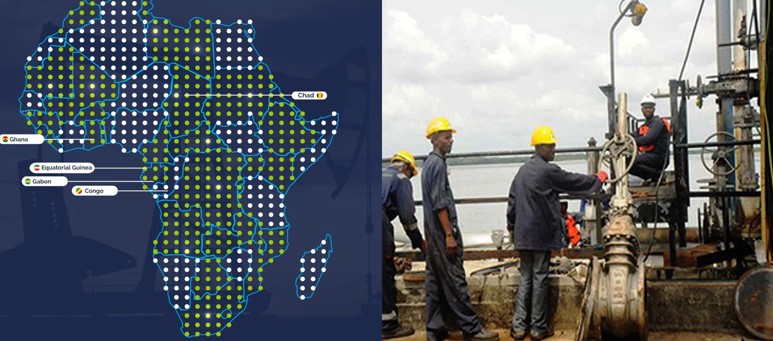Sub-Saharan Oil Producers are Building Momentum (By NJ Ayuk)
Post By Diaspoint | May 17, 2023

While the whole of Africa deserves to benefit from its oil reserves to a much greater degree, progress is underway
Sub-Saharan countries are playing an increasingly prominent role in African oil production this year.
OPEC members Nigeria and Angola remain among the continent’s top producers. In fact, they, along with Libya, Algeria, and Egypt, will account for 80% of African oil output in 2023.
But, as noted in the African Energy Chamber’s (AEC’s) newly released outlook report, “The State of African Energy Q1 2023,” much of the remaining oil this year will come from sub-Saharan countries like Gabon, Chad, Congo, Ghana, and Equatorial Guinea. Let’s examine recent oil industry developments in each of these countries in greater detail.
Gabon
Since the 1950s, oil exports from Gabon have accounted for a majority of the nation’s GDP. After seeing a peak in 1996, a price crash in 2014, and a natural decline in production that collided with the widespread havoc that COVID-19 wreaked on the global oil sector, recent developments in the Gabonese oil market could potentially bring about the return of more prosperous times for the country’s oil producers.
The unexpected oil market disruptions induced by Russia’s invasion of Ukraine and other economic shifts have inadvertently created new opportunities for Gabon, and a series of regulatory changes have revitalized foreign interest in the country’s fossil fuel resources.
President Ali Bongo Ondimba’s administration aligns with the AEC’s position that Africa can simultaneously work to lessen the effects of climate change and transition to renewable energy sources while promoting economic growth through continued oil and gas development.
Gabon’s efforts to protect its rainforests from deforestation and degradation were recognized when Gabon became the first African nation to receive payment from the UN’s Central African Forest Initiative (CAFI). At the same time, Gabon sought to maintain its rank as the fifth largest sub-Saharan oil producer by opening new licensing rounds for shallow and deepwater drilling and reorganizing the Gabon Special Economic Zone (GSEZ), easing customs compliance and offering tax advantages to foreign investors. A new hydrocarbons code also offers international oil companies better returns on exploration and production (E&P) investments made in Gabon.
Although Gabon’s oil production failed to achieve its target rate of 220,000 barrels per day (bpd) by 2023, it did reach 200,000 bpd in April, a marked improvement over the 180,000 bpd rate noted in 2020.
While much of the work underway to raise this production rate comes in the form of mature or marginal oil field redevelopment led by Perenco and BW Energy, the region saw a total of 18 new appraisal and exploratory wells drilled between 2022 and 2023.
If the Gabonese government continues its push to attract foreign investment and further offshore deepwater exploration, the country will remain on a promising path toward game-changing discovery and profitable development.
Read More from original source
